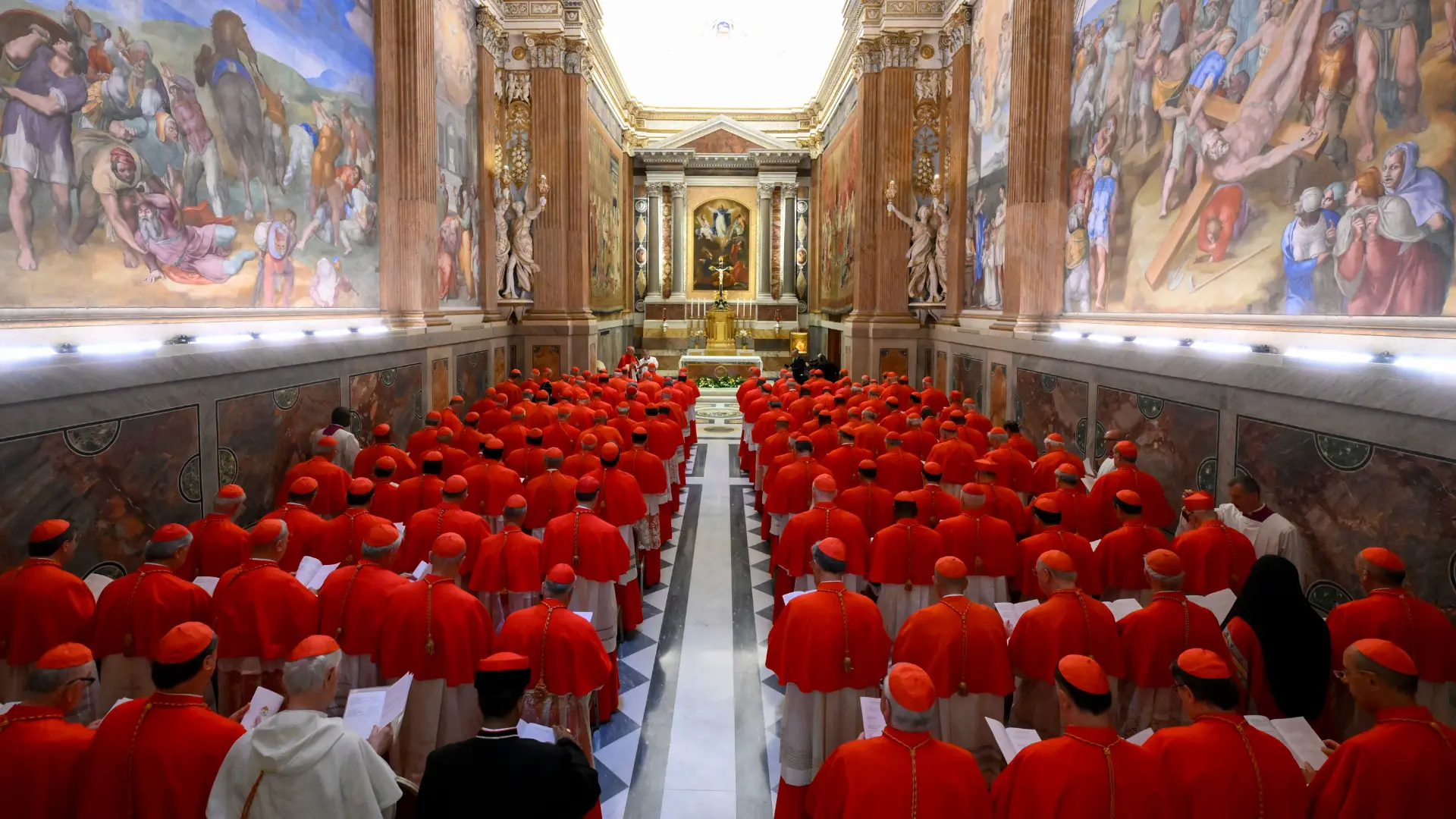108 of 133 cardinals electing new pope were picked by Francis: Will the next pope follow his path?

World: A major factor in this conclave is Pope Francis’ deep influence on the group choosing his successor. Of the 133 voting cardinals under the age of 80, 108 were appointed by Francis himself. Trending
Cardinals from across the globe have started the task of selecting a new pope, following the death of Pope Francis on 21 April. The conclave, a centuries-old and highly secretive process, is taking place in the Sistine Chapel, beneath Michelangelo’s famous painting The Last Judgment.
On Wednesday (May 7) afternoon, 133 cardinals eligible to vote entered the chapel, marking the start of the closed-door proceedings to choose the next spiritual leader of the 1.4 billion-member Catholic Church.
To preserve the secrecy of the conclave, all cardinals are cut off from the outside world, phones have been handed over, communication devices disabled, and even the Vatican’s airwaves jammed.
Also read: Pope conclave begins: Cardinals gather for final mass before selecting Pope Francis' successor
Pope Francis shaped the voting body
A major factor in this conclave is Pope Francis’ deep influence on the group choosing his successor. Of the 133 voting cardinals under the age of 80, 108 were appointed by Francis himself.
That means more than four out of five of the men casting ballots were chosen by the late pontiff, potentially shaping the outcome toward his values and vision.
The most diverse conclave in Church history
Experts say this is one of the most globally diverse gatherings the Catholic Church has ever seen. Professor Susan Timoney of the Catholic University of America told CNN, “The conclave is one of the most diverse that we’ve had in the history of the Church.”
Over his 12 years as pope, Francis brought in over 20 cardinals from nations that had never previously been represented in the College of Cardinals, among them Mongolia, Laos, Papua New Guinea and Mali. Most of these appointments came from developing nations.
This shift was made possible because many cardinals from previous papacies reached the age of 80, the cut-off for conclave voting, during Francis' time, giving him the chance to appoint younger, more globally representative members.
Will the next pope continue Francis’ path?
There’s growing speculation about whether the next pope will carry forward the legacy of Pope Francis, who was known for his inclusive approach.
With the majority of voting cardinals owing their role to him, many expect the next pontiff to reflect similar priorities, especially around global outreach, poverty, and interfaith dialogue.
Watch:Papal election: Cardinals to begin conclave to elect Pope Francis' successor
But until the white smoke appears over the Vatican, nothing is certain.
&im=FitAndFill=(700,400))
&im=FitAndFill=(700,400))
)
)
&im=FitAndFill=(700,400))
&im=FitAndFill=(700,400))
&im=FitAndFill=(700,400))
&im=FitAndFill=(700,400))
)
&im=FitAndFill=(700,400))
)
&im=FitAndFill=(700,400))